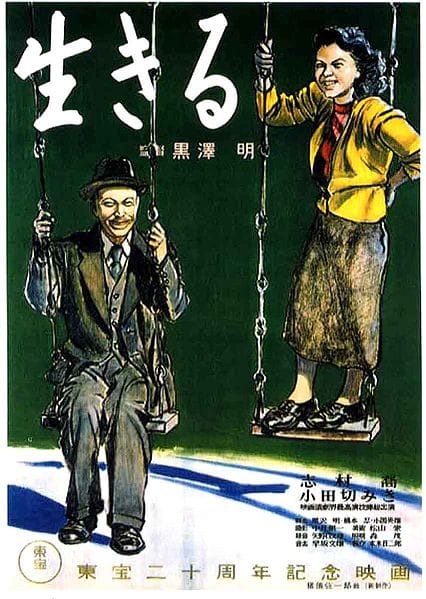Description
Workshop with extended film clips of Ikiru, reflective exercises, and discussion. Akira Kurosawa’s 1952 film Ikiru (the intransitive verb “to live” in Japanese) presents the audience with a seeming paradox: A heightened awareness of one’s mortality can lead to living a more authentic and meaningful life. While progressively confronting the four existential issues of death, meaninglessness, isolation, and freedom, as described in Irvin Yalom’s Existential Psychotherapy, our hero, an elderly bureaucrat named Watanabe, traces the path of the Hero’s Journey as described by the mythologist Joseph Campbell among others. He is aided by a young woman helper named Toyo, who embodies the anima. Simultaneous to this outward arc, Watanabe experiences an inward arc of transformation of consciousness taking him from the individual persona to the transpersonal. Akira Kurosawa has constructed a film that allows the audience to empathize with what our hero experiences: What at first appears to be sheer tragedy—death—becomes transformed into the serene acceptance of the transience of life through the compassionate, contemplative love of the now.
Kurosawa skillfully blends aesthetic concepts and sensibilities both Western (Dostoyevsky, Tolstoy, Goethe’s Faust) and Eastern (Noh, Zen Buddhist) to create one of the greatest of cinematic masterworks.
During this workshop, participants will:
- Identify four existential issues of death, meaninglessness, isolation, and freedom in patients as seen in the hero of this film.
- Be better equipped to empathize and respond compassionately to a patient who is confronting these four existential issues.
- Understand the value of film in evoking emotions that can transform our consciousness about ourselves and others.
Francis G. Lu, M.D., is the Luke & Grace Kim Endowed Professor in Cultural Psychiatry, Emeritus, at the University of California, Davis. As a Distinguished Life Fellow of the American Psychiatric Association (APA), Dr. Lu has contributed to the areas of cultural psychiatry including the interface with religion/spirituality, psychiatric education, diversity/inclusion, mental health equity, and psychiatry/film. He was awarded APA Special Presidential Commendations in both 2002 and 2016 for his contributions to cultural psychiatry, and in 2020, he received the APA Distinguished Service Award. Since 1987, he has led or co-led 36 film seminars lasting 5 or 7 days at Esalen Institute, Big Sur, California. He also co-led 28 film seminars with Brother David Steindl-Rast from 1990 to 2016.


